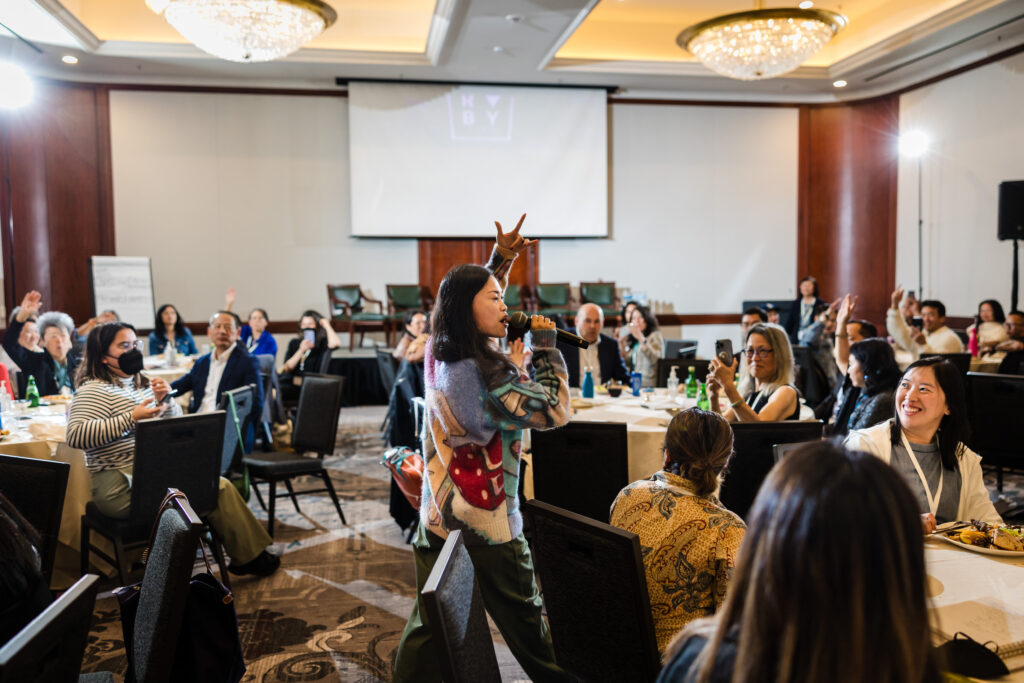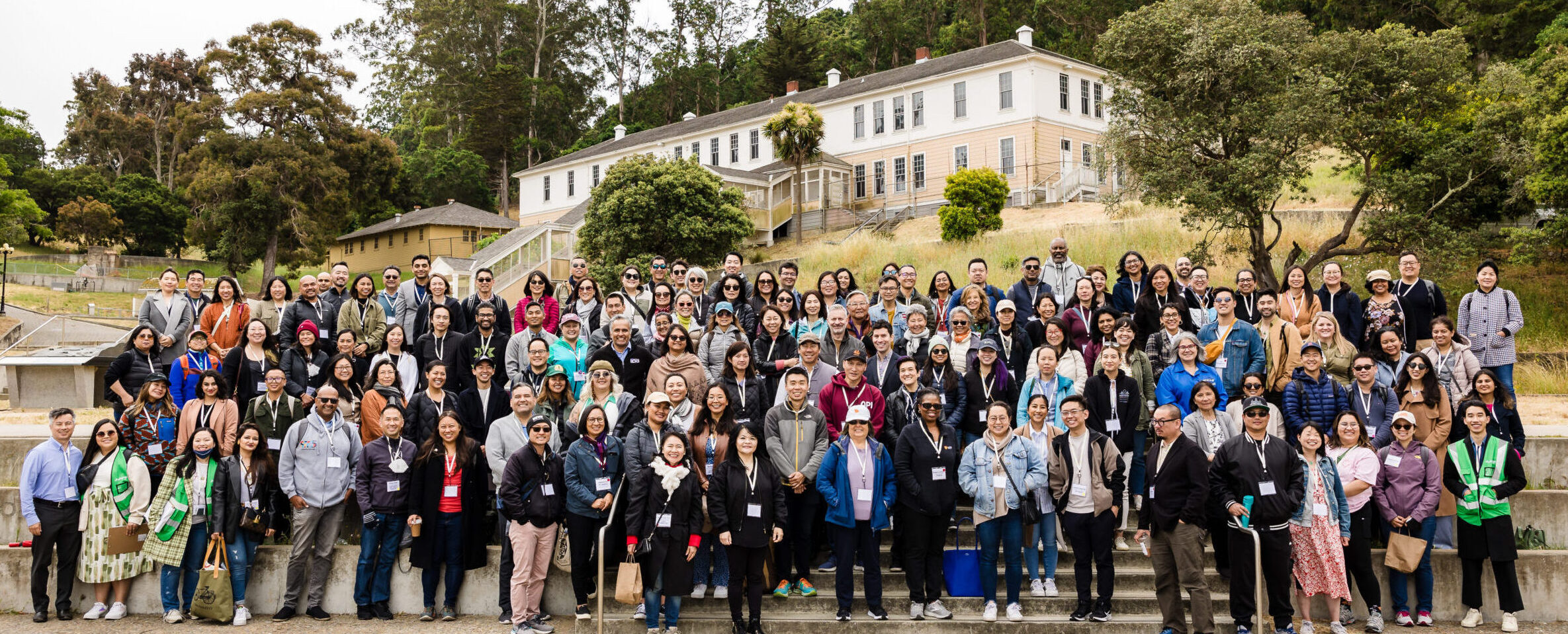After celebrating 30 years alongside Native Americans in Philanthropy (NAP) last year, AAPIP partnered with Angel Island Immigration Station Foundation and New Breath Foundation to host the 2023 Annual Meeting & Network Convening held at Angel Island, SF. The vision for this convening was to connect philanthropy to the history of state violence Asian American, Native Hawaiian, and Pacific Islander (AANHPI) communities have experienced, at a time when anti-Asian hate and violence have reached alarmingly high levels.
Many Asian American communities’ migration stories began at Angel Island. From 1910-1940, Angel Island was designed specifically to institutionalize discrimination against all Asians, including South Asians, Filipinos, and East Asians, and later, was used to detain Japanese Americans during World War II. Now, Angel Island is a living landmark that symbolizes diverse experiences of detention, racism, exclusion, hope, and determination. The Angel Island Immigration Station Foundation protects the historic site, elevates its stories, promotes learning, and celebrates the new beginnings and immigrant contributions that define the strength of the US.
AAPIP is deeply grateful for our generous sponsors who made the 2023 Annual Meeting & Network Convening possible.
You can view photos from the event and download our full conference book here.
Here is a recap of AAPIP’s 2023 Annual Meeting & Network Convening:
Angel Island Learning Journey
Opening Remarks by Pat Eng, Ed Tepporn, and Eddy Zheng
We welcomed the day with opening remarks by Pat Eng, President and CEO of AAPIP, Ed Tepporn, Executive Director of Angel Island Immigration Station Foundation, and Eddy Zheng, Founder and CEO of New Breath Foundation.
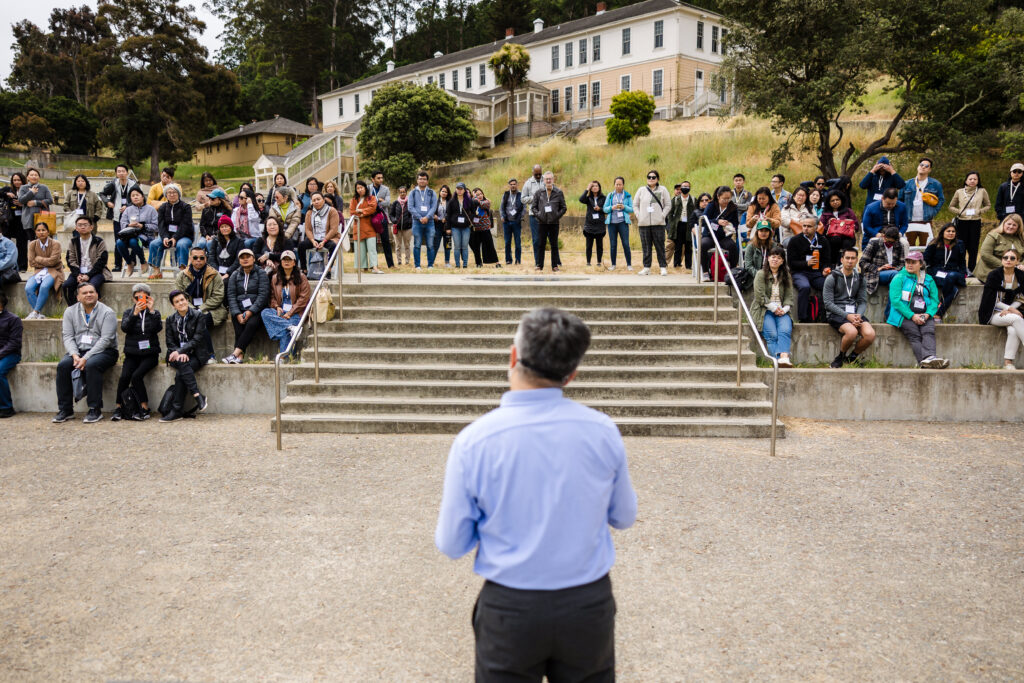
Walking Tours of Angel Island historic site
Participants split into smaller groups to walk the grounds of the Angel Island historic site, including the USIS Detention Barracks, the USIS Hospital Wing / Angel Island Immigration Station Foundation Museum, and the WWII Mess Hall.
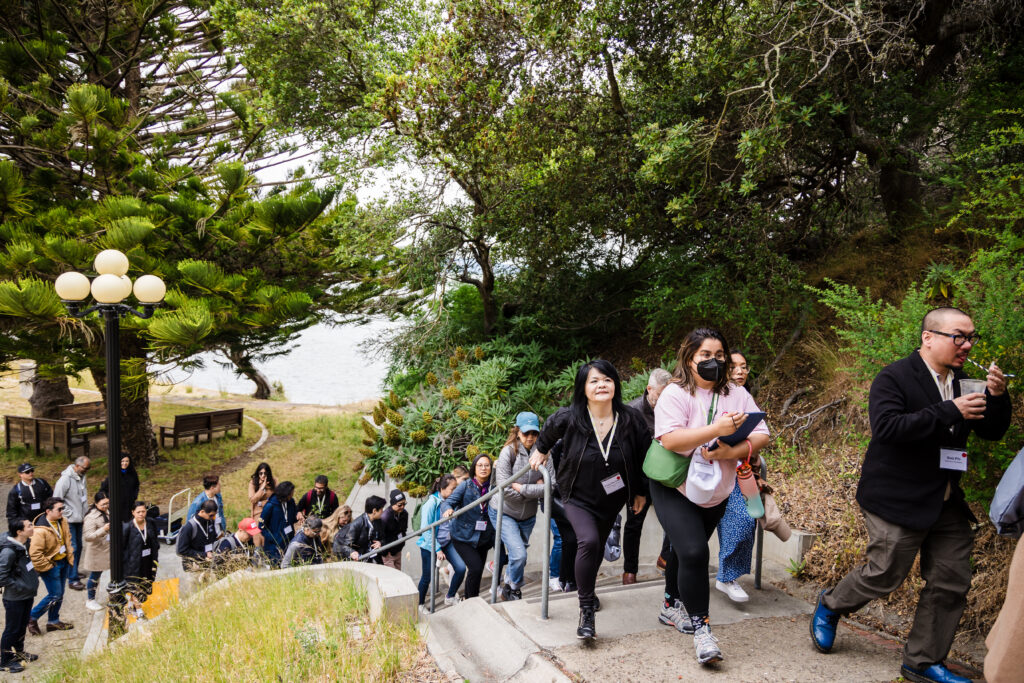
Breakout Session 1: Decriminalizing Trauma: Healing from Legacies of Gender Violence featuring Ny Nourn, Survived & Punished, and Pat Eng, AAPIP
While the women’s movement rightfully advocates for pay equity, and reproductive rights, and criminal justice reform efforts largely focused on men, the shattering impact of criminalizing, incarcerating, and deporting womxn of color largely remains invisible and overlooked. In the quiet of Angel Island, the women’s barracks are long gone, but this session will center a conversation from philanthropic and nonprofit professionals reflecting on the very first law to ban entry to the U.S. targeted Chinese women, setting the stage for immigration policies and detention practices that continue today. We will connect contemporary patterns illuminating systemic racism specifically targeting womxn of color, explore how prioritizing womxn in justice reform strategies bolsters the movement, and invite philanthropy to invest more deeply in this critical work.
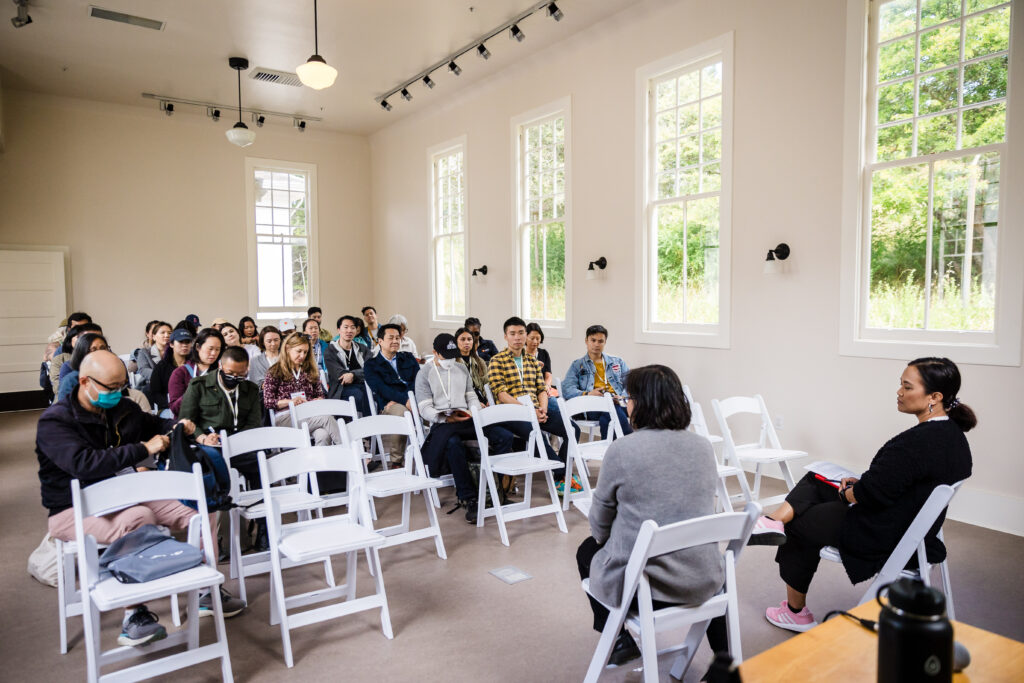
Breakout Session 2: Locked Out of Philanthropy: Restoring AA and NH/PI Communities featuring Anoop Prassad, Asian Prisoner Support Committee, Ed Tepporn, Angel Island Immigration Station Foundation, and Eddy Zheng, New Breath Foundation
Over a century ago, Angel Island was established to detain, interrogate, and deport as many Asian Americans as possible. The institutionalization of xenophobia and inhumane practices persist today and are still seen at the U.S.’s southern border. However, there remains little awareness of how the carceral system targets Asian Americans, Native Hawaiians, and Pacific Islanders. This session will examine the state of the modern carceral system, including the school to deportation pipeline threatening AA and NH/PI youth and families. We will hear from field experts who are already reimagining a world of restorative justice and collectivism, and are calling on philanthropy to actively invest in a future rooted in reparative action.
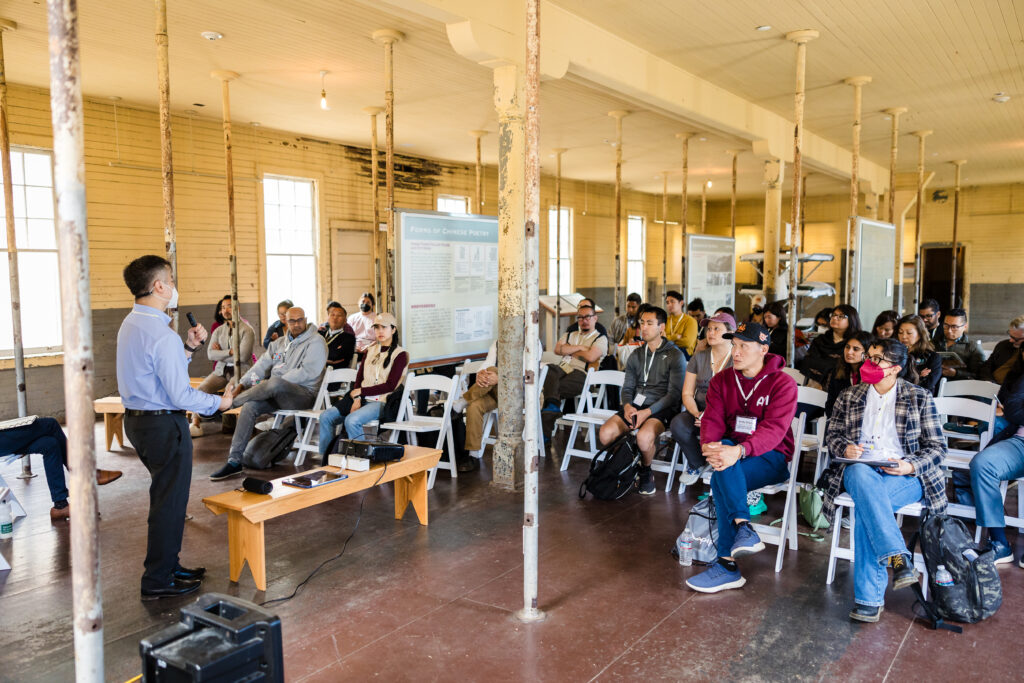
Breakout Session 3: Reckoning with the Past, Healing the Future featuring Grant Din, Genealogist & Family Historian, and Brandon Hadi, AAPIP
The most powerful racial justice changemakers in philanthropy understand the importance of reckoning with their legacies of wealth accumulation to chart a path where healing is possible. On the individual level, breaking cycles of intergenerational trauma often begins by looking back in time – where the trauma originated. In this interactive workshop facilitated by genealogist and family historian, Grant Din, attendees will explore examples of Asian Americans who have charted a path of generational healing in the process of uncovering their family histories and gain tools and resources to begin their own process of uncovering and rewriting their family history.
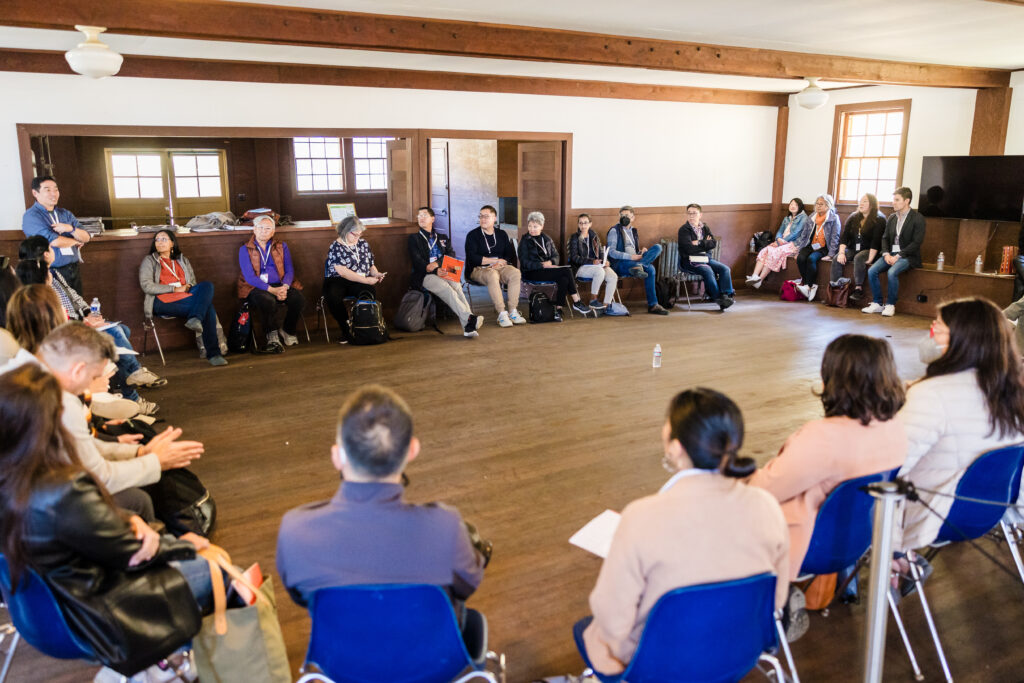
Walking the Grounds: Museum Exhibits, Reflection Spaces, Community Building
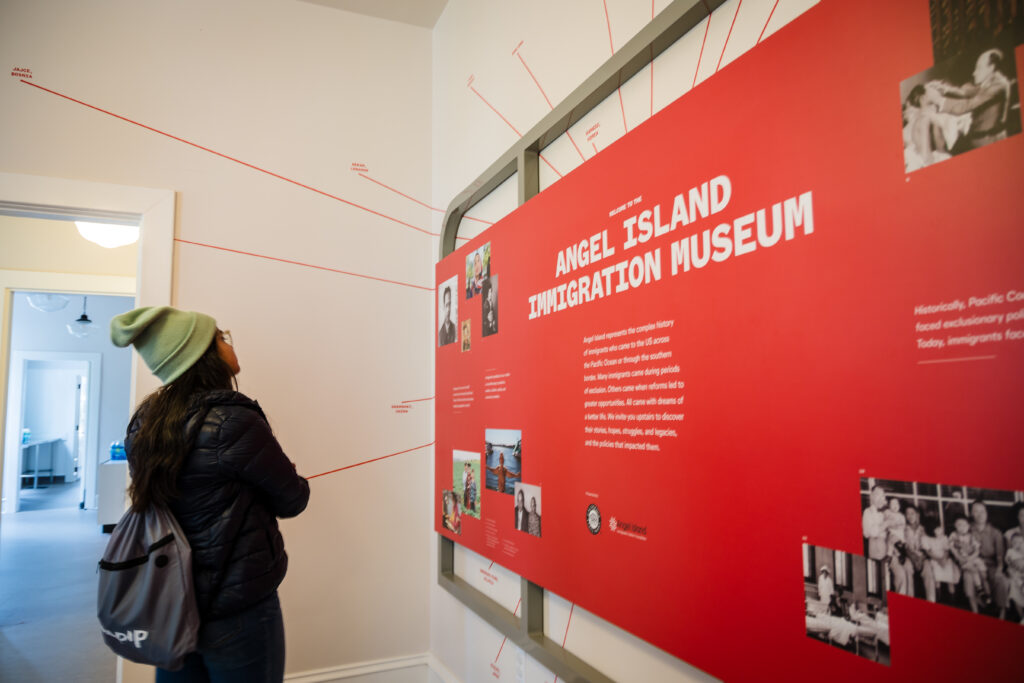
Closing Remarks by Brandon Hadi, Ed Tepporn, Pat Eng
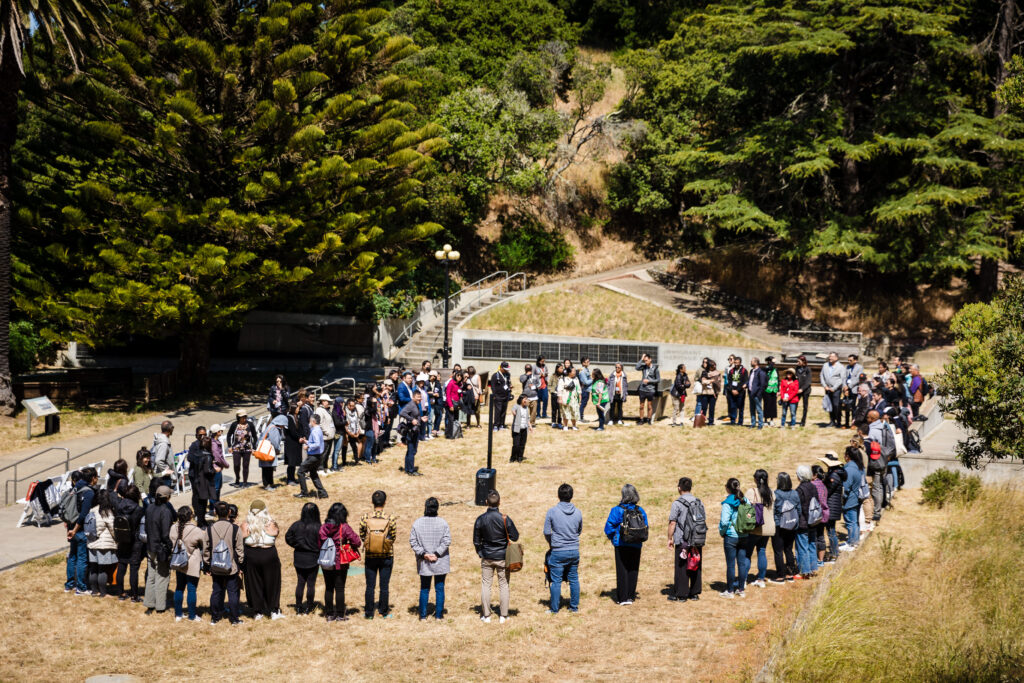
San Francisco Convening
Opening Ceremony and Art Performance by Genny Lim
Genny Lim is a second generation Chinese American born and raised in San Francisco who has received a number of awards over the last . Lim co-wrote Island: Poetry and History of Chinese Immigrants on Angel Island.
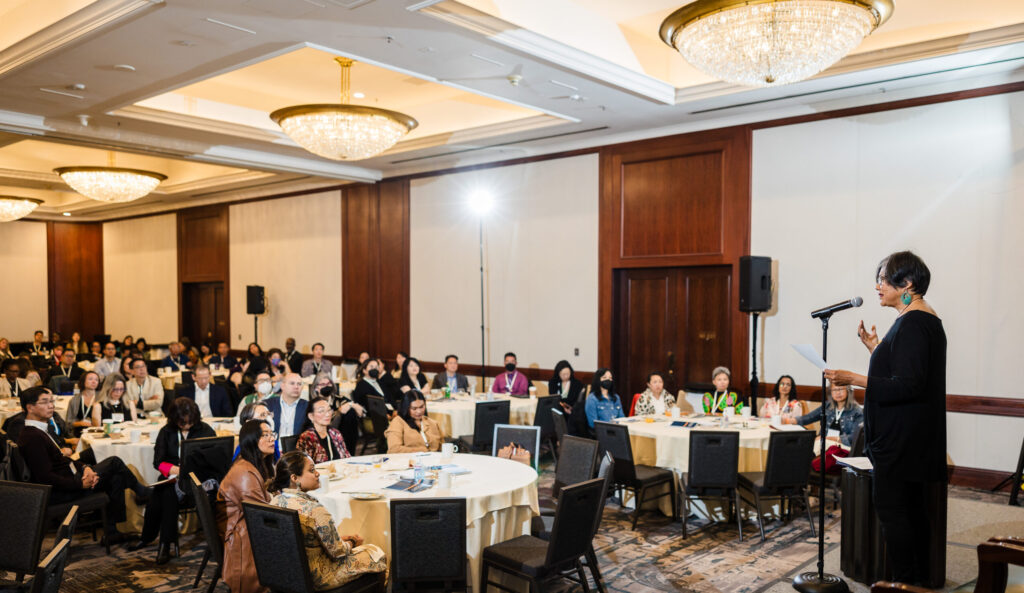
Panel Discussion: The State of Asian American, Native Hawaiian, and Pacific Islander Nonprofit Organizations featuring Geraldine Alcid, Filipino Advocates for Justice, Executive Director, Karthick Ramakrishnan, AAPI Data, President & Founder, Patsy M. Tito, Samoan Community Development Center, Executive Director, Yuan Wang, Lavender Phoenix, Executive Director, Carolyn Wang Kong, Asian Pacific Fund, Executive Director, Moderated by Fontane Lo, AAPI Data, Deputy Director
This panel discussion began with a presentation on the latest and largest landscape analysis of Asian American and Native Hawaiian/Pacific Islander nonprofit organizations to date, Stepping Up for Community: 2023 Report of AANHPI-Serving Nonprofits, analyzing the impacts of the pandemic on the AA and NH/PI nonprofit ecosystem. How have these community-serving organizations fared financially over the last few years? How have these organizations adapted and responded to community needs? Our panelists weighed in on the outlook for AA and NH/PI nonprofits, including what nonprofits are paying attention to, and how philanthropy can support this work.
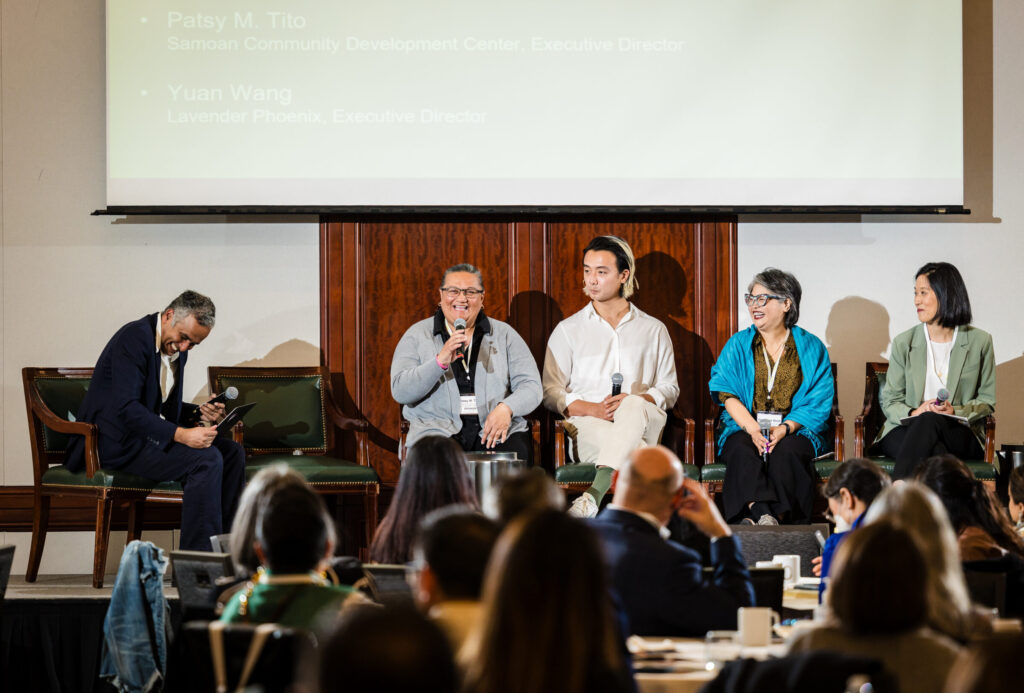
Plenary: Moving Money for Justice: A Cross-Racial Conversation on Building Power in Philanthropy featuring Dana Arviso, Native Voices Rising, Senior Program Strategist, Marcela Muniz, Latino Community Foundation, Vice President of Philanthropy, Marc Philpart, California Black Freedom Fund, Executive Director, Eddy Zheng, New Breath Foundation, President & Founder, Moderated by Doua Thor, Sobrato Philanthropies, Vice President Strategy & Influence, AAPIP Board Member
This era of racial reckoning has ushered in a new moment in philanthropy. Signaling a beginning nod to the decades of underinvestment in organizations led by and for communities of color and some baby steps toward examining the historic roots of the chasmic wealth divide across color lines, a number of high profile announcements of more sizeable investments to our communities over the past few years brings some hope toward a transformational moment in philanthropy. Building on this momentum, what is the intersectional power? There is a long but often hidden history of cross-racial solidarity between Asian American, Black, Latinx, and Indigenous communities although much public attention tends to lean into tensions in between. This panel brings together leaders from California based funds focused on building power within communities of color that lead the charge for change. We will explore the successes, the pitfalls, and importantly, the potential for cross-racial solidarity when identity-based funds come together for even greater impact.
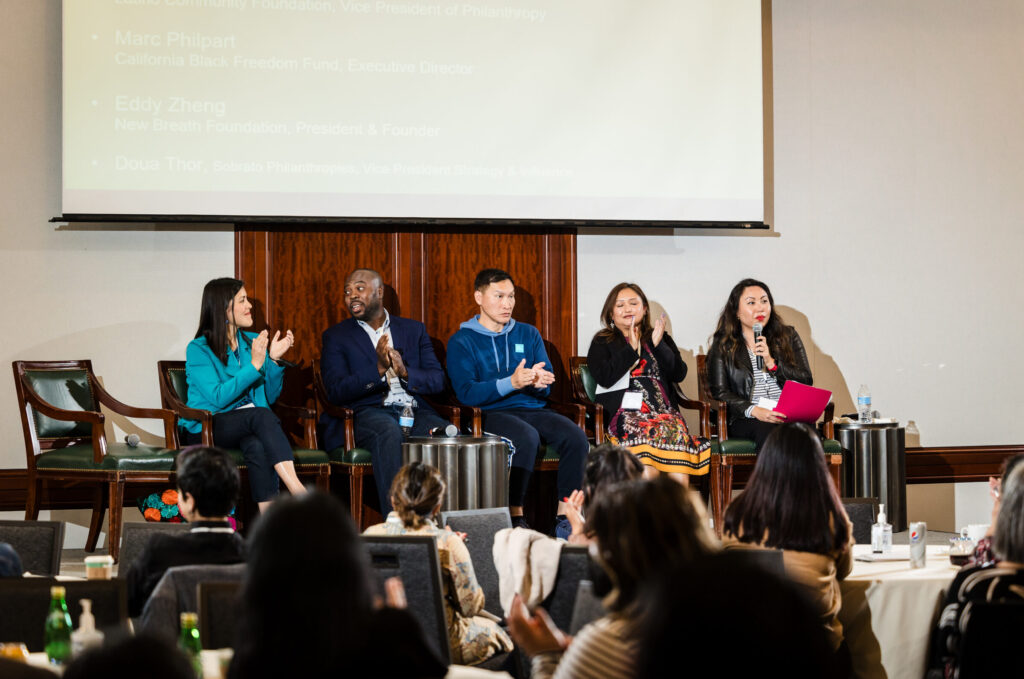
Special Performance by Ruby Ibarra
Ruby Ibarra is a rapper, director, and spoken word artist from the Bay Area, CA who released her debut album, CIRCA91, at the end of 2017 and has since toured across the United States and the Philippines.
